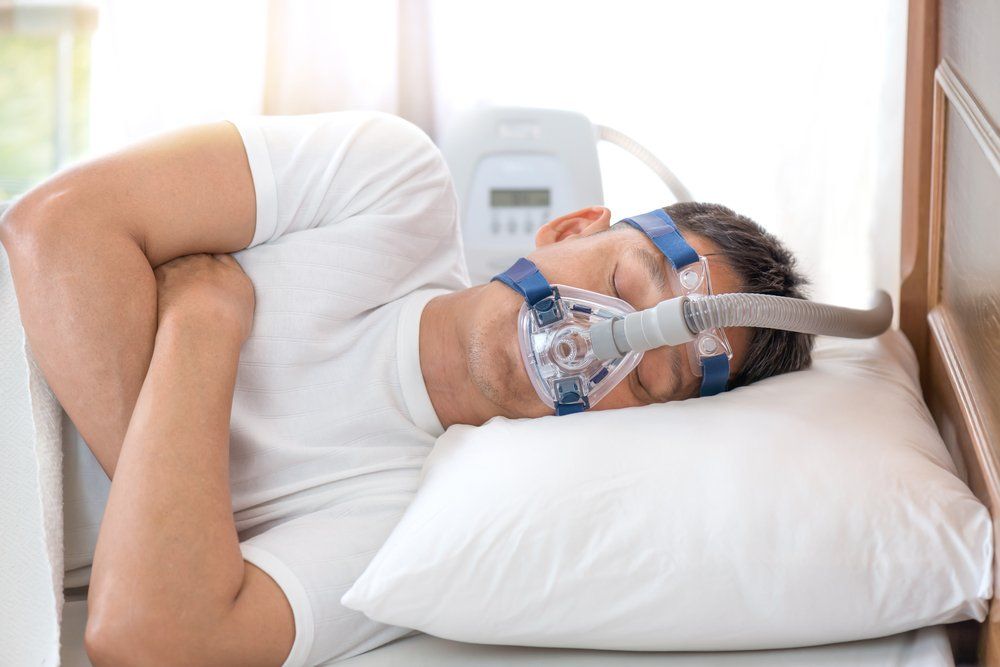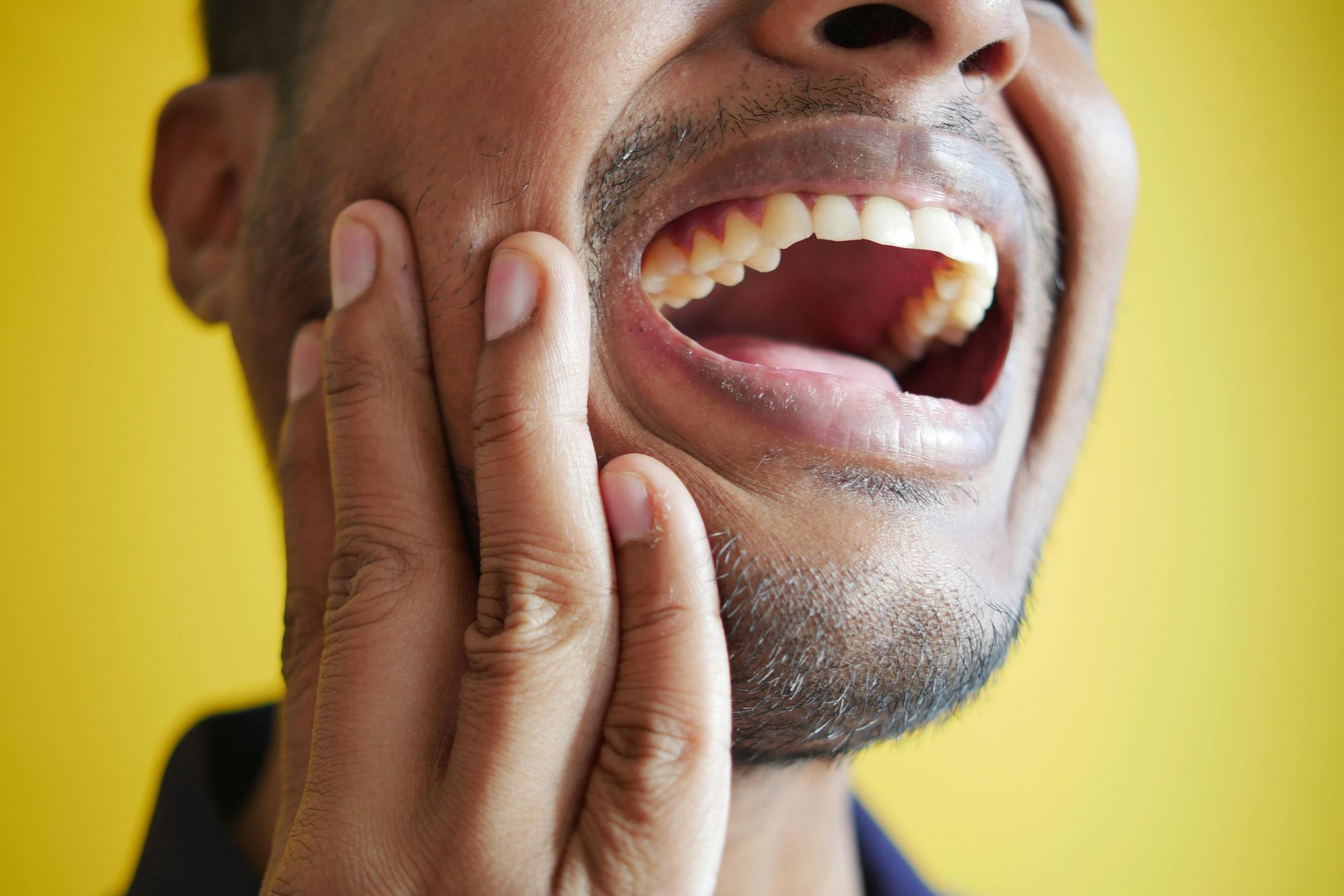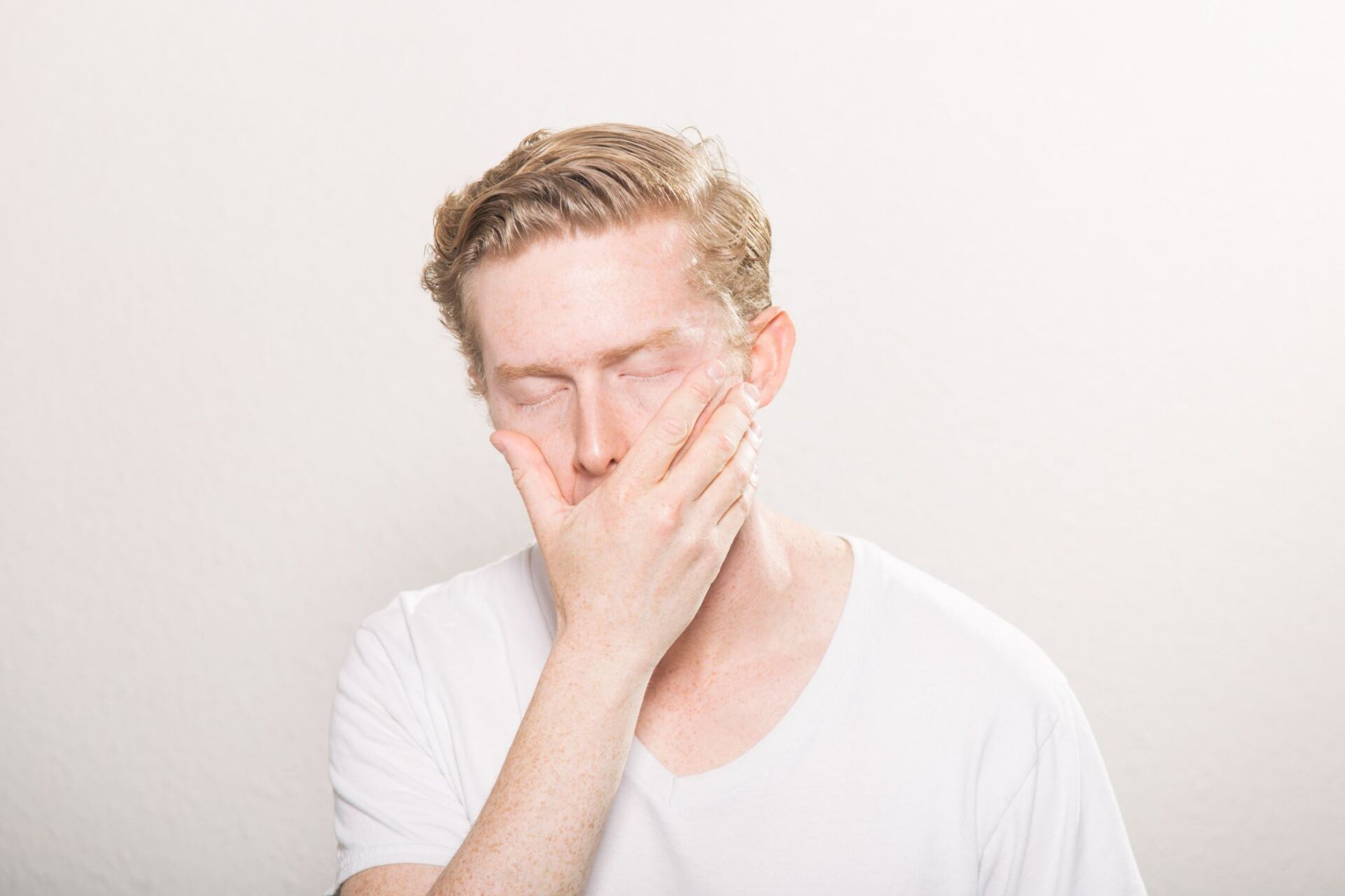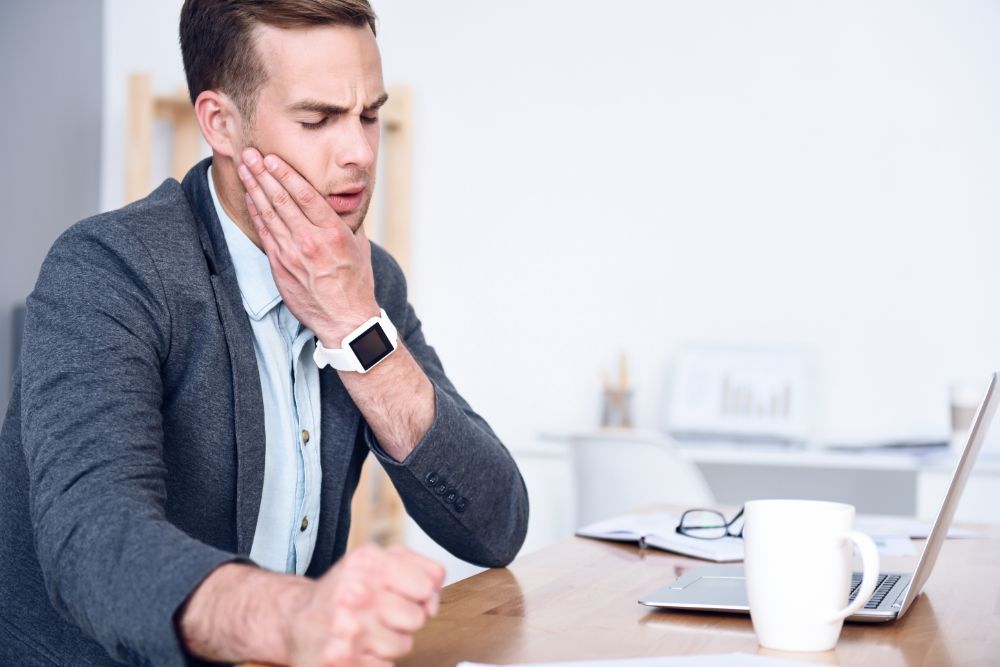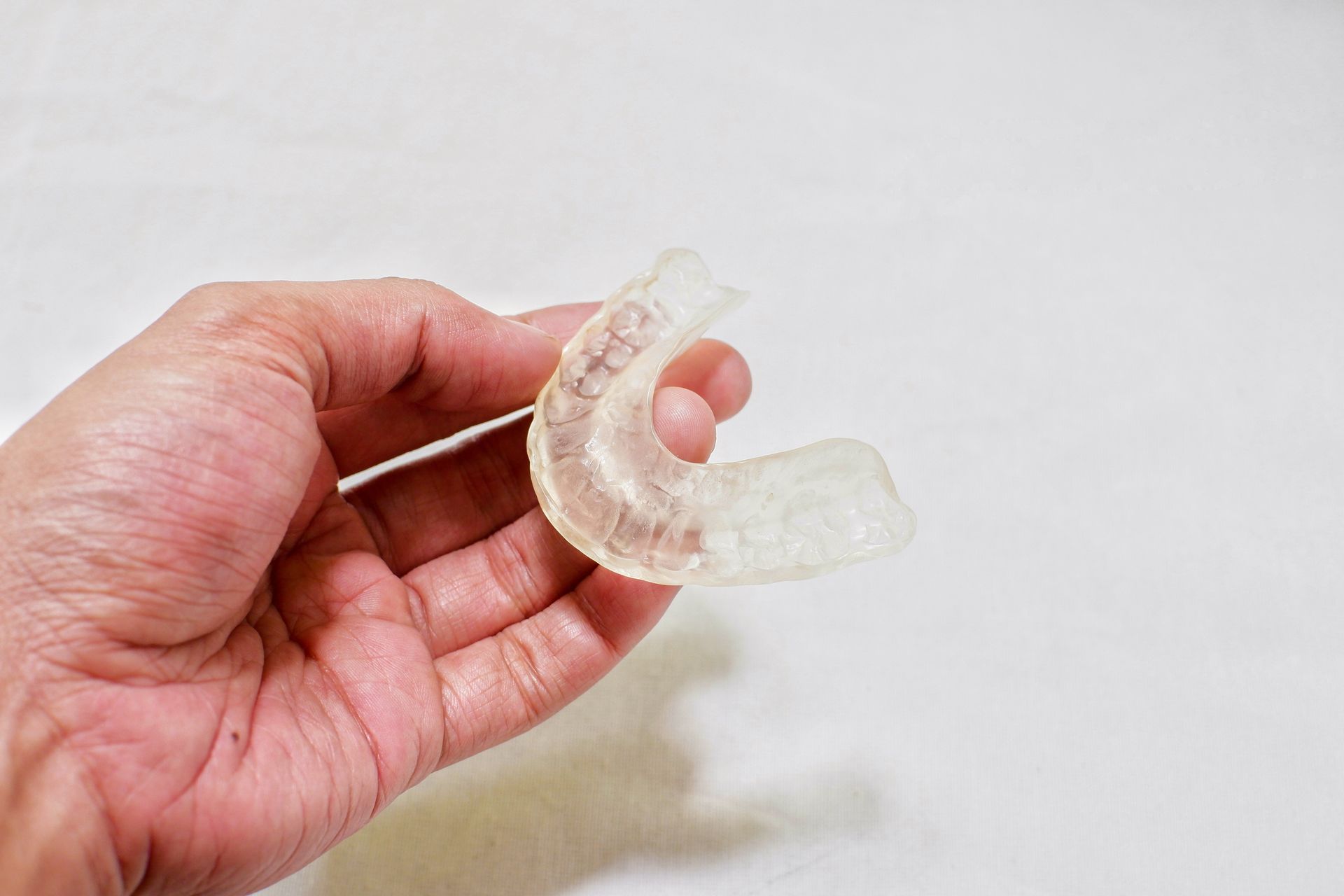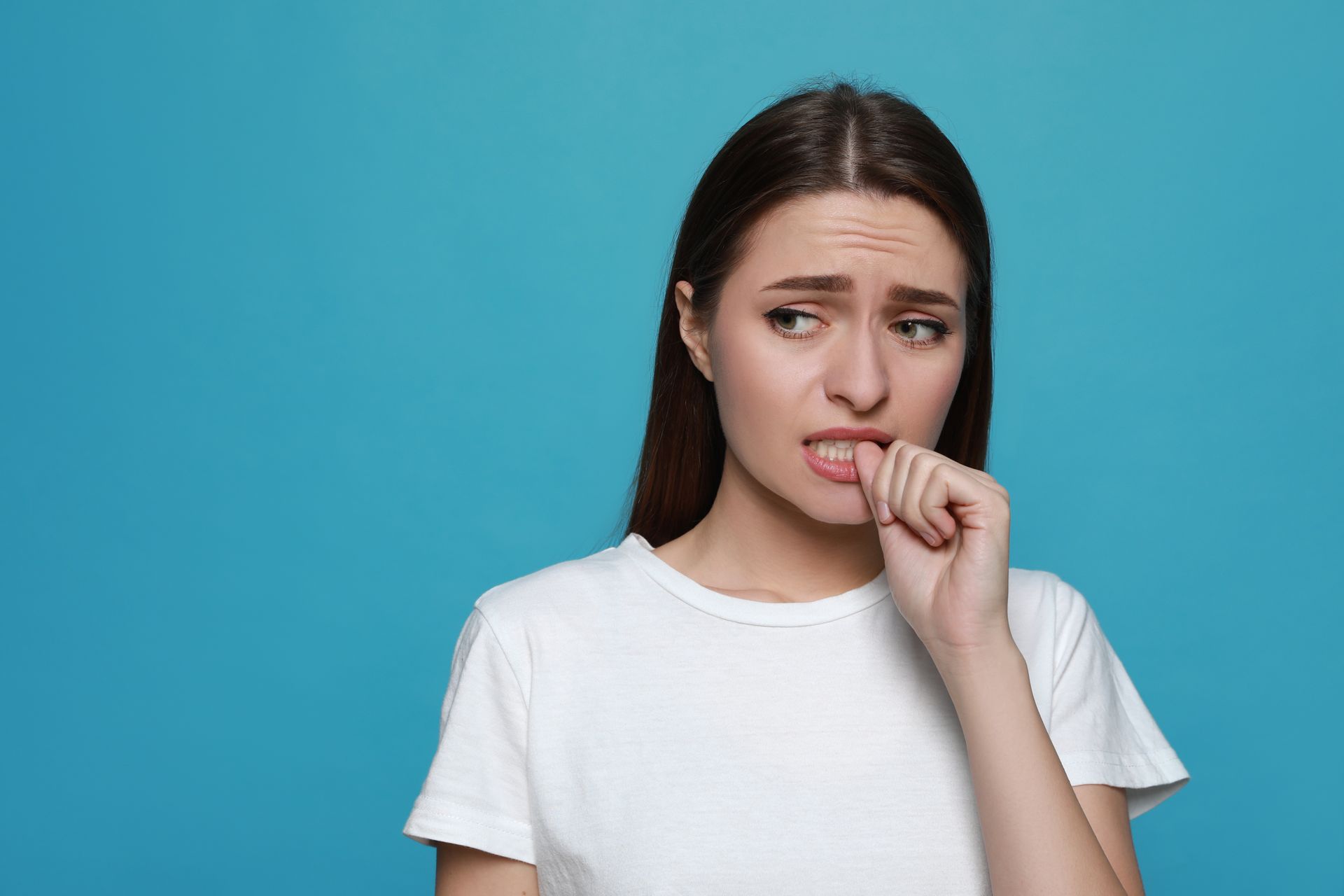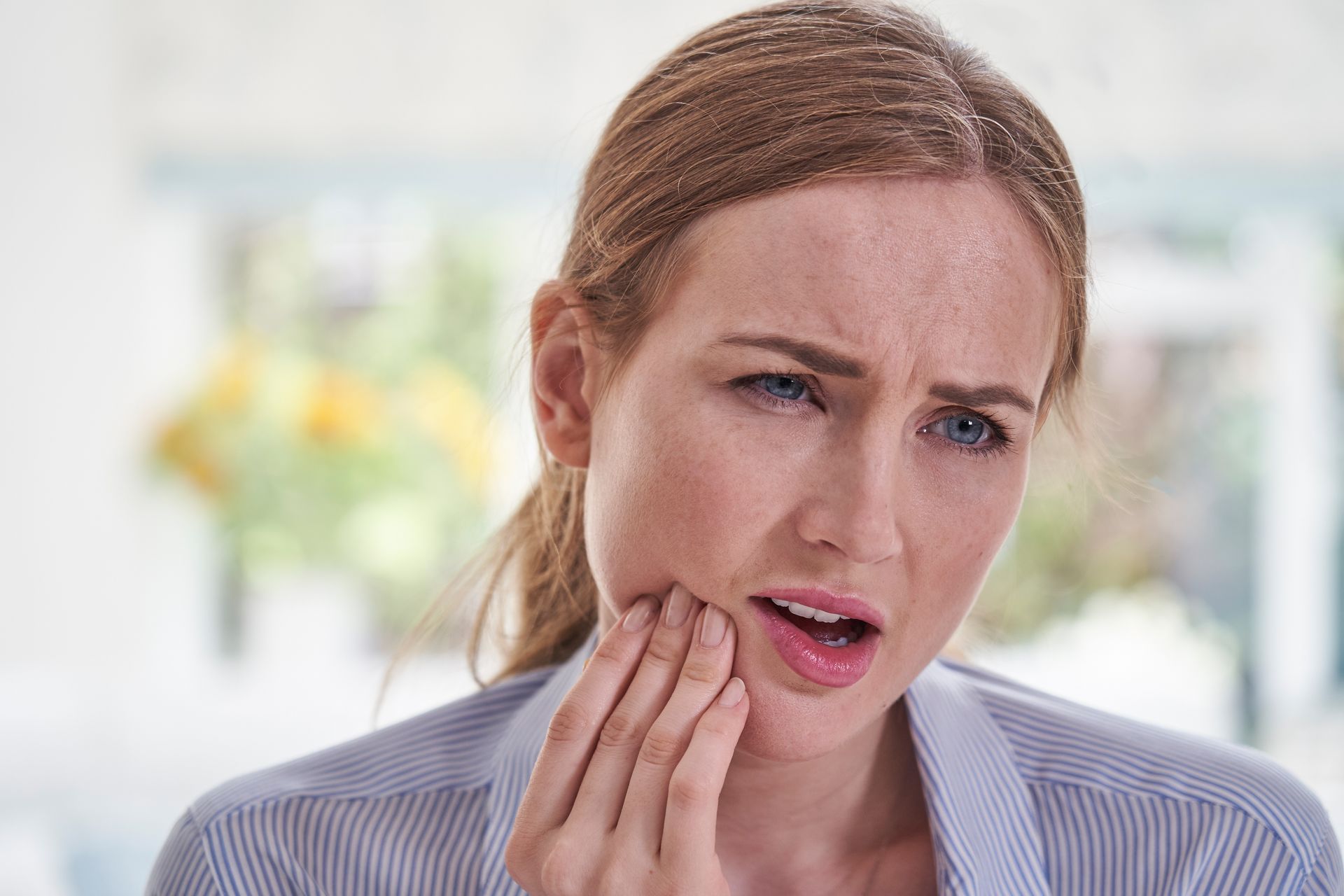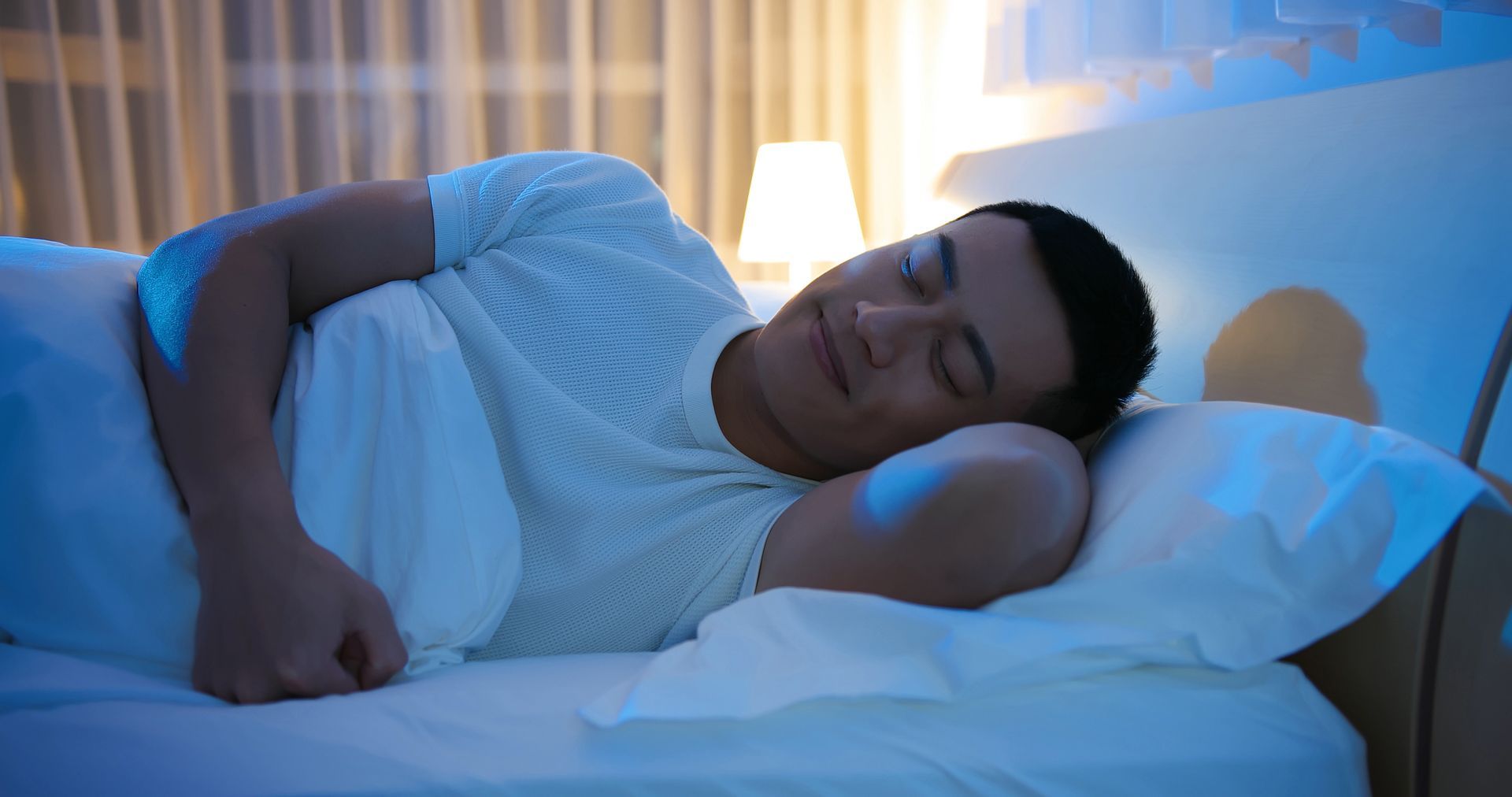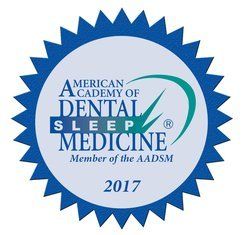Does the CPAP Machine Cause or Exacerbate TMD Symptoms?
Did you know the age-old question “Which came first, the chicken or the egg?” applies to TMD (temporomandibular joint disorder) and use of a CPAP (continuous positive airway pressure) machine to treat obstructive sleep apnea?
Although CPAP users wonder, “Did the CPAP cause my TMD, or did I have TMD before and the CPAP is making symptoms worse?” the connection is easy to miss. TMD affects the temporomandibular joint (TMJ) and its adjoining muscles, often resulting in painful symptoms, such as ear pain
, jaw pain, headaches, and many more.
With obstructive sleep apnea, your throat muscles intermittently relax and block your airway during sleep. When this occurs, breathing stops and your brain rouses your body to restart breathing. CPAP treatment consists of a breathing mask connected to a flexible tube through which a machine supplies pressurized air into your nose to prevent your airway from collapsing.
What is a CPAP Machine?
How Does the CPAP Machine Impact the TMJ?
Studies show that many people suffer from both TMD and obstructive sleep apnea, because these conditions, once considered to be totally separate, can actually be connected. Our drive to keep our airway open while suffering from apneic events may cause an increase of grinding and clenching in the jaw that contributes to TMJ disorders. Lower blood oxygen levels associated with OSA can also have an impact on TMJ health.
In part, the co-prevalence of sleep apnea and TMD can be due to the way the teeth and jaw have developed. Growth and development of the jaw is influenced by genetics and also by environmental issues, including mouth breathing.
A common solution for mouth-breathing CPAP users is to wear strap secured around the chin and the top of the head to keep the jaw shut. However, due to the prolonged pressure on your chin from the strap, the jawbone is pressed back which can irritate your TMJ.
When the TMJ is irritated, painful TMD symptoms often appear. They include ear pain, “stuffiness,” and muffled hearing because the TMJ is less than half an inch away from the ear. Spread of inflammation from the jaw to the ear is not uncommon due to the close proximity to the inflamed TMJ. Other TMD symptoms include jaw joint (TMJ) pain, intense headache, and more. You may also begin to clench or grind your teeth when wearing a full mask or chin strap, or notice a clicking sound when your jaw is moved or a decrease in mouth opening.
Why Does CPAP Intolerance Happen?
- The mouth or nose piece doesn’t fit tightly to their face leading to air leaks.
- Straps and mask causes skin irritation and pressure sores.
- The patient feels uncomfortable and can't fall asleep with apparatus on.
- Mouth breathing renders nose CPAP machines ineffective.
- Patients can’t adjust to positive air pressure.
- Some patients swallow air, a condition called aerophagia.
- Humidity issues lead to dry throat or nose.
- Noise keeps you or a loved one awake.
- As you can see, there are many reasons people struggle to use CPAP machines. This helps explain why so many people ultimately reject them and why alternative sleep apnea treatments may be in order.
How Can I Treat Sleep Apnea and TMD at the Same Time?
Before we understood the connection between TMD and obstructive sleep apnea, these conditions were treated separately. Now we know better, and a growing number of people seek treatment that addresses both conditions at the same time using an oral appliance.
In fact, custom-made oral appliances have become a preferred alternative treatment to CPAP when appropriate. Although CPAP treatment is effective, many people cannot tolerate wearing a CPAP and become non-compliant or abandon using it altogether. Left untreated, obstructive sleep apnea can put you at higher risk of early death, stroke, hypertension, coronary artery disease, and other chronic medical conditions.
Fortunately, custom-made oral appliances—worn in the mouth like a sports guard while you sleep—can be an effective treatment for obstructive sleep apnea and TMD sufferers alike. These appliances hold the lower jaw forward just enough to keep the airway open and prevent the tongue and muscles in the upper airway from collapsing and blocking the airway. Another option is wearing CPAP and an oral appliance together to help reduce the pressure on a CPAP machine, making it more comfortable to use.
The first step is to be evaluated by TMD/Sleep Apnea Specialist. Being treated by a dentist specially trained in TMJ and obstructive sleep apnea gives you a better chance of correcting the problems early, which can improve your likelihood of a successful treatment outcome.
If You're In Need of Guidance, Get In Touch With Us
If you know or suspect you have obstructive sleep apnea and/or TMD, find out how Dr. Katherine S. Phillips can help you find relief. Her practice is dedicated to treating TMD and sleep disorders, including obstructive sleep apnea. With a Master of Science in Orofacial Pain and as a board-certified sleep dentist, she will develop a treatment plan that best fits your individual needs.
Contact Us Today For A Consultation!
Contact Us
Thank you for reaching out to us at REstore TMJ and Sleep Therapy. We look forward to helping you. We will follow up within 24 hours for contact requests received during normal office hours Monday – Thursday. If you have submitted a request later in the day on Thursday – Sunday, we will follow up on Monday. If you would like to talk to us before we can get to your request, please feel free to give us a call at 281-296-6797 Monday – Thursday 8am – 4:30pm. Have a great day!
Regards,
Dr. Katherine Phillips and Staff
Please try again later.
REstore TMJ & Sleep Therapy P.A.
1001 Medical Plaza Drive,
Suite 200 | The Woodlands, TX 77380
281-296-6797
Dr. Phillips serves TMJ & Sleep patients in: The Woodlands TX | Spring TX | Conroe TX Tomball TX | Cypress, TX | Houston, TX | Kingwood TX | Humble, TX | Katy TX
© 2023 by REstore TMJ & Sleep Therapy | Terms Of Service & Privacy Policy | XML Sitemap
-2700x842-1920w.png)




